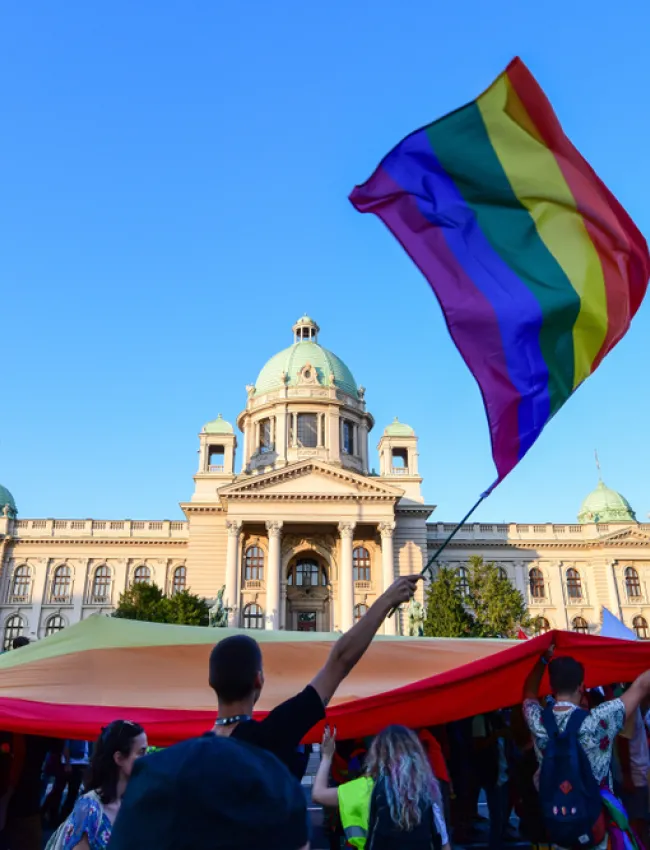Battling the Backlash: The Future of Gender Equality in the Western Balkans

9:00am - 10:30am EDT
3:00pm - 4:30pm CEST
4:00pm - 5:30pm EEST
About this event
Anti-gender movements across the Western Balkans have gained momentum, challenging hard-won human rights and undermining fragile democratic norms. These movements, often backed by religious and far-right actors, have targeted women and sexual minorities, especially in education and public assembly. From efforts to block gender-sensitive curricula to violent opposition against Pride parades, a growing alliance of illiberal forces is reshaping political discourse around gender and identity. At the same time, cuts to foreign aid have significantly weakened civil society organizations working to protect the rights of vulnerable groups, adding to the risks they face.
What are the drivers behind the rise of anti-gender mobilization in the Western Balkans, and how do they impact laws, public discourse, policies, and democratic norms? What strategies can civil society organizations adopt to defend and rebuild space for inclusive rights and advocacy? How can the EU and international partners support the protection of vulnerable groups?
This panel brings together regional experts to examine the rise of anti-gender movements in the Western Balkans, with a focus on their impact on education policy, civil liberties, and minority rights. It will explore how religious, political, and far-right actors are coordinating to erode protections for vulnerable groups, and what this means for democracy in the region. The discussion will also address the urgent need to build and strengthen networks of solidarity, and advocate for intersectional, rights-based policies at the local and international level.
Please register for the event by clicking on the button above.
For more information, contact Zsuzsanna Végh ([email protected]).
The event takes place in the framework of GMF's ReThink.CEE Fellowship program.
The German Marshall Fund of the United States (GMF) is a nonpartisan policy organization committed to the idea that the United States and Europe are stronger together.
Event Speakers
Daniel Hegedüs
Regional Director, Transatlantic Trusts Central EuropeDaniel Hegedüs is a GMF regional director, Transatlantic Trusts Central Europe focused on Central Europe. He writes and speaks extensively on populism and democratic backsliding in Central and Eastern Europe, and the European a...